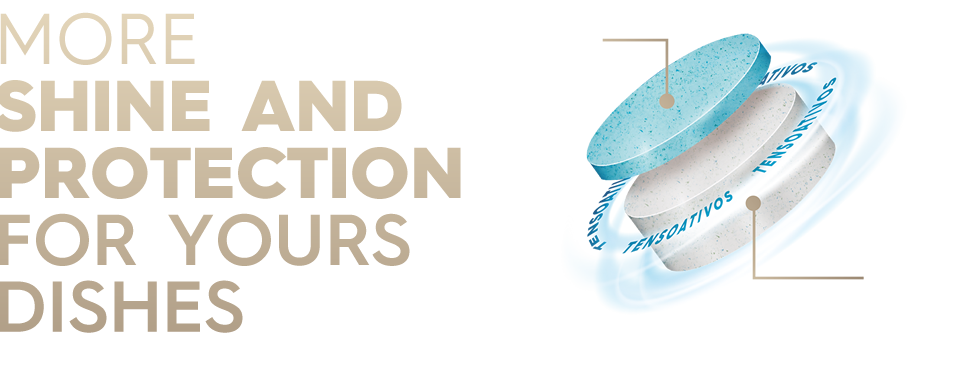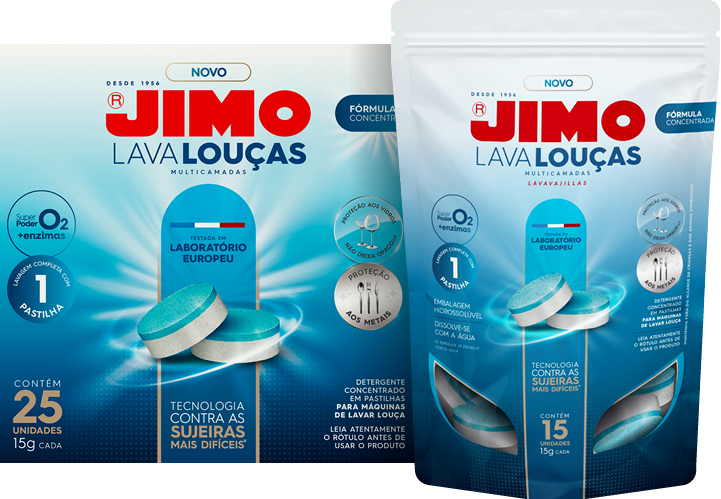NEW TABLET
MULTILAYER
Increases product performance by separating some ingredients!
Each one fulfills its role at the right time during the wash cycle!
CONCENTRATED FORMULA
Smaller and more powerful! The environment also appreciates this benefit!
TESTED IN A EUROPEAN LAB
Approved by experts within the highest level standards.
THE POWER OF ENZYMES
They break down the molecules of the most resistant residues such as starch and protein (potatoes,
meats and eggs).
PROTECTS GLASS
It adds shine and doesn´t leave the glass and crystal opaque with daily and continuous washing.
PROTECTS METALS
Prevents aggression and corrosion in ferrous materials such as cookware and cutlery.
ACTIVE OXYGEN
Removes difficult stains like tea, coffee and wine.
BIODEGRADABLE SURFACTANTS
They are "detergents" that enhance cleaning and rinsing.
SEE OUR
COMPLETE LINE
JIMO TIPS

DO YOU HAVE QUESTIONS ABOUT WHERE AND HOW TO PLACE EACH TYPE OF UTENSIL INSIDE THE
DISHWASHER?
Then, check out the tips below:
● Before loading the dishwasher, make sure the baskets are correctly
fitted on the tracks;
● Always start by loading the dishes in the baskets from back to front,
which makes loading easier;
● All utensils must be loaded with some space between them to avoid damage
due to friction and leave a space for water to pass through, ensuring good washing
performance;
● Ensure that concave items such as bowls, pans and pots are in a position
to allow water to drain freely, otherwise it will accumulate inside these items and drying will be
compromised;
● For greater stability of your dishwasher, load one basket at a time,
while the other basket is tucked away;
● To ensure the correct functioning of your dishwasher, make sure the
dishes loaded in the basket are not blocking the propellers. To do this, turn the propellers after
the baskets are loaded and make sure that it can make a complete turn without obstacles.
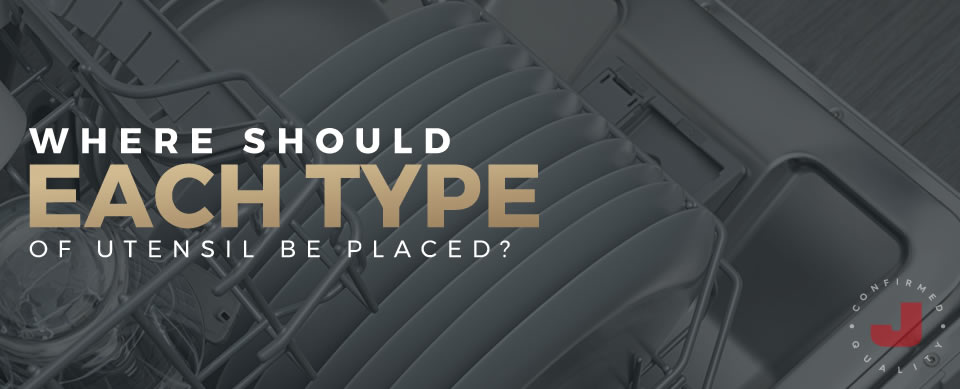 ● Glasses, cups, mugs, bowls: Position them in the top dishwasher
basket, always with its opening facing downwards.
● Glasses, cups, mugs, bowls: Position them in the top dishwasher
basket, always with its opening facing downwards.
● Shallow plates and deep plates: They must be positioned in the
center of the bottom basket, with the front facing the dishwasher door.
● Dessert plates and saucers: They should be on the sides of the
bottom basket, with the front facing the center of the dishwasher.
● Cutlery: Position them in the specific baskets for these items,
usually located on the front of the dishwasher or in a moving basket and always with the handles
facing down.
● Pots, lids, bowls, dishes, plastic pots: They must be loaded in
the bottom basket, with the opening facing down and slightly inclined to obtain the best washing
result, remove the top basket and do not load one pan on top of the other.
 For your dishwasher to last for many years, you need to take some precautions:
For your dishwasher to last for many years, you need to take some precautions:
● Avoid clogging, you don't need to pre-wash the dishes to put them in the
dishwasher, but make sure any solid food leftovers have been removed from the dishes and utensils.
The dishwasher doesn't work like a garbage disposal, and leftovers can clog it and compromise its
operation. Use JIMO Lava-Máquinas (Dishwasher) to eliminate accumulated grease and residue;
● Make sure the dishes are correctly positioned, without the items being
crammed, and ensure that there is free space so that the water jets can reach all the pieces and so
that there is no friction between them;
● Make sure the propellers are free to circulate (some larger utensils may
prevent their movement) and that the nozzles that release the water jets are unobstructed;
● Always use the JIMO products of your choice (gel or tablets), and make
sure that the compartment for the JIMO Secante Abrilhantador (Drying Brightener) is full;
● To keep your dishwasher running smoothly, remove and clean the filters
regularly. Use JIMO Essence Limão (Essence) to neutralize bad odors between washes;
● Read and follow the instruction manual for your dishwasher.
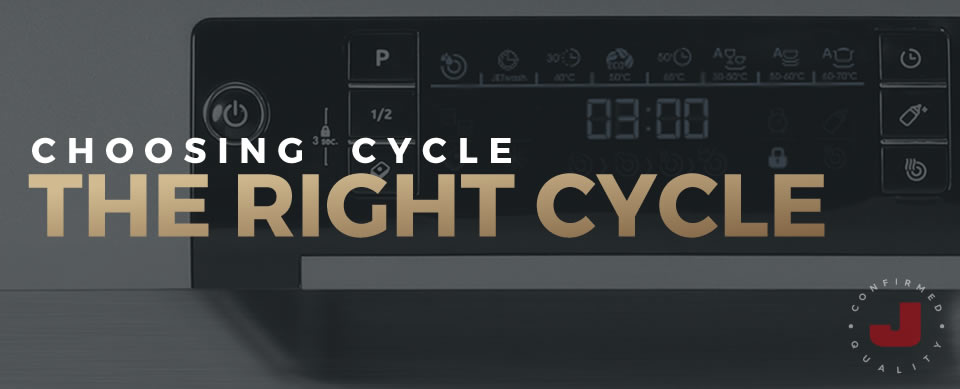 Your dishwasher is equipped with different wash cycles that may vary by model. In general, the
following cycles are used:
Your dishwasher is equipped with different wash cycles that may vary by model. In general, the
following cycles are used:
● Eco Cycle: Wash that uses less water and energy compared to the
normal cycle. It is suitable for dishes with easy to remove stains;
● Automatic Cycle - Intelligent/Smart: This cycle adjusts the
duration and temperature of the wash cycle automatically, and the amount of water changes
considering the level of dirt and the amount of dishes;
● Standard / Normal / Everyday Cycle: Wash cycle for dishes with
easy to remove stains;
● Intense / Deep Clean / Super Wash / Very Dirty / Long Cycle: It
is recommended for washing items with hard to remove residue, such as frying pans and pots. As it
uses very hot water, it is not suitable for delicate items;
● Quick Cycle: Quick wash for dishes with little food
residue;
● Delicate / Crystal and Porcelain Cycle: Special wash for
delicate dishes or dishes that require gentle washing. The cycle is only suitable for slightly dirty
dishes, as it uses water at milder temperatures;
● Pre-wash / "Acqua Spray” Cycle: Suitable for quickly rinsing a
few items while waiting for a full load. Cycles may vary between models and manufacturers. Refer to
the instruction manual for the specific cycles of your dishwasher. For best results, use the JIMO
Dishwasher line.
